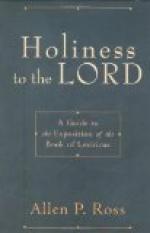Assume, then, that mind, intellect, personality, the ego, were forms of a third entity, an entity “X,” correlated in nature with the entities energy and matter. Then, just as energy and matter continuously change their forms, so with the transformations of energy and of matter, entity “X” would continuously change, disappear in one form and reappear in another form. Entity “X” could therefore not exist permanently in one and the same form, and the permanency of the ego—that is, immortality—would still be illogical, would not exist within the realm of science, but would carry us beyond the limitations of the human mind into the unknowable. Permanency of the ego—that is, individual immortality—would require a form of entity “X,” in which it is not further transformable. This would be the case if the transformations of entity “X” are not completely reversible, but tend one definite direction, from lower-grade to higher-grade forms, and the latter thus would gradually build up to increasing permanency. There is nothing unreasonable in this, but a similar condition—in the reverse direction—exists with the transformations of energy. They also are not completely reversible, but tend in a definite direction, from higher- to lower-grade form—unavailable heat energy (the increase of entropy by the second law of thermodynamics). Thus in infinite time the universe should come to a standstill, in spite of the law of conservation of energy, by all energy becoming unavailable for further transformation—that is, becoming dead energy. If entity “X” existed, could it not also have become unavailable for further transformation by reaching its maximum high-grade form and thus become not susceptible to further change—that is, “immortal”—just as the unavailable heat of the physicist is “immortal,” and not capable of further transformation? Here we are again in the fog of illogic, beyond the limitations. However, it sounds familiar to the Nirvana of the Buddhist.
Physics and chemistry obviously could not deal with entity “X,” and the most delicate and sensitive physical or chemical instruments could get no indication of it, and all attempts at investigation by physical or chemical means thus must be doomed to failure. But such investigations of entity “X” belong to the realm of the science of psychology, or, rather, a broader science, of which psychology is one branch dealing with one form of entity “X,” mind, just as, for instance, electro-physics is one branch of the broader science of physics, dealing with electrical energy, while physics deals with all forms of energy.




